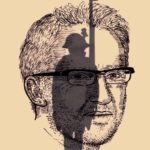Erasmus University Rotterdam – The Institute for Housing and Urban Development Studies (IHS)
The Institute for Housing and Urban Development Studies (IHS) is an international centre of excellence of the School of Economics (ESE) and the Faculty of Social Sciences (FSS) of the Erasmus University Rotterdam, The Netherlands, operating on a global scale by offering post-graduate education, training, advisory services and applied research.
Today more people live in cities than ever before. Our urban future confronts us with great innovations and challenges. Cities need urban professionals who can understand, face and manage these developments to create urban futures that improve the quality of life in cities. IHS trains and advises these professionals on a global scale through its integrated approach in education, advisory services and research that offers practise and theory on urban management and development.
List of IHS publications: http://www.ihs.nl/urban_professionals/ihs_publications/
University Of Amsterdam – Centre For Urban Studies – 13 Dissertations 2013
The Centre for Urban Studies houses one of 15 “Research Priority Areas” at the University of Amsterdam, combining longstanding expertise across departments in the social sciences and humanities.
The link to 13 dissertations completed in 2013:
http://urbanstudies.uva.nl/completed-dissertations-2013.html
Sam Forbes ~ My life In London’s Houseboat Slums
theguardian.com. Febr.23, 2014. Where do you live if you cannot afford London’s soaring rents? I took the only home I could find: a tiny, mouldy room in a freezing barge on the Thames. And there are many desperate people in the same situation.
Most Londoners will know someone suffering from the extortionate expense of finding a place to live. For those trapped in the rental market, the outlook is particularly bleak. In 2011 the Resolution Foundation reported that the price of securing a tenancy can be over £2,000 in upfront costs, while other figures have shown that one in three tenants now spend half their takehome pay on rent. As more and more areas of London become unaffordable to anyone but wealthy professionals, where will essential workers go to live: the people who clean the streets, and cook the food and keep the city ticking over? They can stay at home with relatives, or sublet from people with existing tenancies, but some do not have these options. When I found myself in this position, I went to the only place I could: the slums of the Thames.
Read more: http://www.theguardian.com/london-houseboat-slum-rents-barge?
Unesco Database – Publications In Open Access
 You are encouraged to download, copy, translate any publication below and use it free of charge, as long as the original author is given credit for the original creation. No prior permission is required to do so.
You are encouraged to download, copy, translate any publication below and use it free of charge, as long as the original author is given credit for the original creation. No prior permission is required to do so.
Go to: http://www.unesco.org/resources/online-materials/
Beacon Of The World’s Urban Poor Nominated For Nobel Peace Prize 2014
us6.campaign-archive2.com. Febr. 2014. Jockin Arputham and Shack/Slum Dwellers International (SDI), the largest urban slum dweller movement in the world, have been nominated for the Nobel Peace Prize in 2014. The nomination of the network of pavement dwellers, landless and homeless, in 33 countries in Africa, Asia, and Latin America, is an unprecedented step in the life of a man who has risen from the streets of Mumbai to global prominence as the beacon of people-led approaches to urban development. The bid was put forth by Swedish Minister for Public Administration and Housing Stefan Attefall. The bid also has high level political support from Norway and South Africa, including Derek Hanekom, South African Minister of Science and Technology and former Minister of Land, who has also announced his support of this nomination. In his nomination letter Minister Attefall chose the warning of the Greek philosopher Plato to the Athenians as the basis of supporting Mr. Arphutham’s candidacy: “the income of the rich should not exceed the income of the poor by more than five times. Any more would create economic inefficiency and generate “the greatest social risk”: civil war”.
Read more: http://us6.campaign-archive2.com/
From The Web ~ openDemocracy.net
http://www.opendemocracy.net/
– is a digital commons not a magazine – a public service on the web not a commodity
– is an independent, public interest, not-for-profit; a counter to the corporate media
– champions human rights
– seeks out and debates forms of democratic change
– delights in good ideas vigorously debated and argument backed by investigation
– critiques vested interests
– supports pluralist inclusion without populism and tries to a give voice to those marginalised
– tries neither to blink at the crisis of government nor cultivate alarmism
– opposes fundamentalisms, including market fundamentalism
– regards the freedom and liberty of others as our own
– practices ‘openness’, rather than grasp at stultifying ‘neutrality’
– publishes under Creative Commons licensing
– supports peace-making and reconciliation
– is committed to global education and encouraging good and creative writing
– welcomes a range of forms to enable us to respond swiftly and interrogate deeply
The openDemocracy model
We have an open, federal organisation that reflects our values in the architecture of the website and the way we operate, with Sections that are editorially independent, do their own publishing and raise their own funding – while the Main Site publishes on all general issues, inspires and hosts new debates, encourages guest editors and manages production and the business side.



